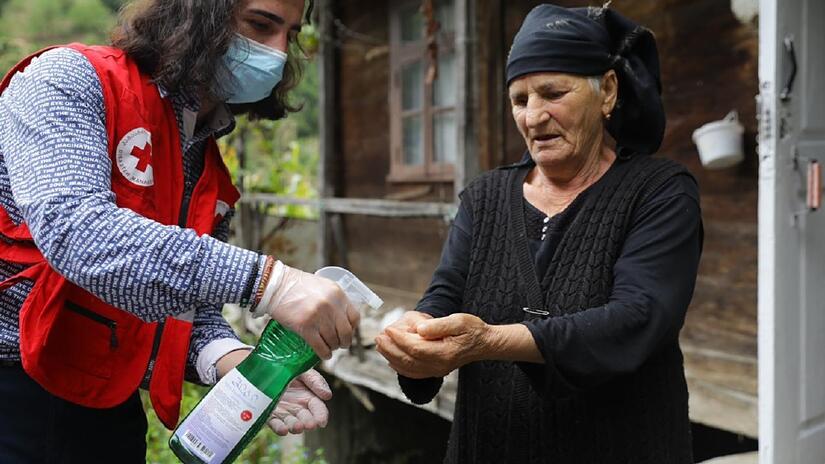Budapest/Geneva, 13 January 2021 – The COVID-19 pandemic is having catastrophic health, social and financial impacts on older people in Europe’s South Caucasus region, according to a new study led by the International Federation of Red Cross and Red Crescent Societies (IFRC).
The study, which was carried out in Armenia, Azerbaijan and Georgia, shows that the consequences of COVID-19 are being borne disproportionately by poor and older people who have become poorer, sicker and more isolated.
The research involved 2,200 older people, as well as health care workers and Red Cross and Red Crescent volunteer aged-care workers.
Olga Dzhumaeva , the head of the IFRC’s Country Cluster delegation for the South Caucuses, said older people make up a growing proportion of society in all three countries, and were already facing diverse and complex challenges before the onset of COVID-19.
“In all three countries, access to appropriate care among older people was found to be deficient.
Key findings from the report include:
- The ability of older people to cover basic expenses has dropped significantly since the beginning of the COVID-19 outbreak due to decreased family support.
The report sets out short and long-term recommendations for those involved in older people’s health and social care to ensure better coverage, targeting and quality of services so the risks to older people are reduced in the current pandemic and future crises. These include improved coordination, guidance and support to public bodies and service providers engaged in older people’s health and social care to ensure better coverage, targeting and quality of services.
The report can be found on the IFRC website. It was carried out in collaboration with the Armenian Red Cross Society, the Red Crescent Society of Azerbaijan, the Georgia Red Cross Society, the Austrian Red Cross, the Swiss Red Cross, and the UN Population Fund. - Worsening of older people’s health was registered as a secondary effect of COVID-19, along with negative impacts on mental health and spiritual wellbeing, physical activity and nutrition and diet, mostly due to pre-existing emotional instability, lower self-esteem and limited mobility. Access to health care services has become significantly more difficult for those not receiving home-based care, due both to the lock-down and the shift in focus of health care facilities to the control of COVID-19 cases.
- Social contact with neighbours, family and the broader community has decreased. This, combined with limited mobility brought on by COVID restrictions and, hence, even greater dependence on support from neighbours, relatives and community, has adversely affected older people’s emotional states, especially in urban areas.
- COVID-19 restrictions have limited older people’s access to most public services and infrastructure, posing a challenge on top of the digital divide between the young and older generations.
- Ageism along with physical and financial abuse was reported in all three countries, particularly in urban areas, and that discussion of these forms of abuse was taboo.
- Caregivers were under increased pressure despite changes in their own personal and family situations but they continued to provide care regardless.

